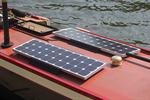
Alternate Energy Definitions
Energy is obtained from a variety of sources:
- Fossil fuels (i.e.. oil, gas, coal).
- Nuclear fuels (i.e.. uranium, plutonium).
- Renewable Fuels such as:
- Geothermal (i.e.. hot springs)
- Solar
- Water (Tides, Waves, Hydro electricity)
- Wind Power
- Crops (Firewood, fuel distilled from crops, bagasse).
The modern world has developed a reliance on fossil fuels. Fossil fuels are a finite source though -they will eventually run out. They are also a source of pollution. Nuclear fuels have been adopted in some countries, however there remains a question of safety associated with that energy source.
The best alternative for the long term future, must be renewable energy sources. While these sources have not been of major importance in the past, they provide the best answer to our energy needs in the future.
Alternative Energy: is commonly defined as energy that is generated from non fossil fuel resources and that does not harm the environment. Generally speaking nuclear energy is not included.
Renewable Energy: is energy from sources that are naturally replenished such as solar, wind, wave/tidal, hydroelectric, biofuels and geothermal energy.
Solar Energy: is energy from the sun’s solar radiation and can be divided into passive (no mechanical devices) and active solar energy (such as photovoltaics).
Wind Energy: is energy from the conversion of wind to electricity by a wind turbine.
Hydropower Energy: is energy generated by moving water, commonly from waterwheels, hydroelectric dams but also from tides and more.
Biofuels: are fuels generated from plant biomass, including bio-diesel and ethanol.
Geothermal Energy: is energy derived from the heat of the Earth’s core.
More from ACS
How safe are your building materials?
